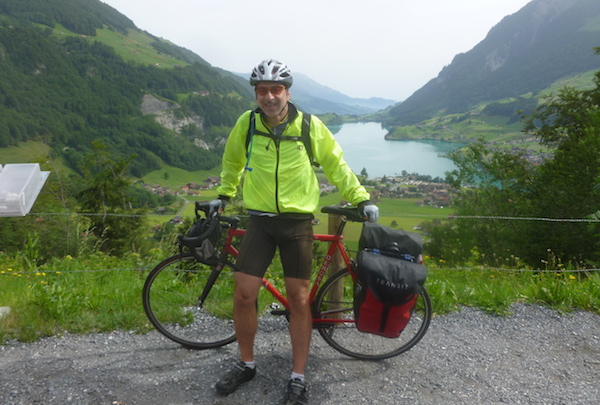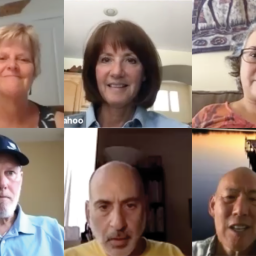What has your journey been like since your Parkinson’s diagnosis?
I was diagnosed on December 6, 2011. On January 5, 2012, I notified my employer that I had been diagnosed with Parkinson’s and gave one year’s notice. It took 13 months to find my replacement. I stopped work on January 11, 2013. The departure was regrettable. I truly enjoyed my work, even while doing it, not just in retrospect; however, I saw two choices: I could hang onto my job as long as I could, then take a demotion and repeat, or I could step out as a Senior Vice President and focus on my health. I chose the latter.
Research studies are one way I can uniquely move the ball forward and the SF Bay Area is full of research opportunities at institutions such as Stanford University, University of California San Francisco (UCSF), University of California Berkeley and the Veteran’s Administration hospital in San Francisco. Participating in 27 such studies to date empowers me. I feel like I’m doing something to fight Parkinson’s, rather than simply being a victim of fate.
I also lead the Willow Glen Parkinson’s Support Group. This group is one of the largest in the Bay Area with 40-60 people at each meeting with a high of 79 people. Leading the group involves lining up speakers for our monthly meetings, sending out notices of meetings and most importantly, hooking up the speakers’ laptop to our projector and making it work.
How do you live well each day?
I exercise a lot. Right now I take exercise classes on Monday, Wednesday and Friday; I walk three miles on Saturday and I do physical therapy for my shoulder on the remaining days. I also try to engage in the Parkinson’s community of patients, researchers and clinicians. I’m honored to say that people from all three communities come to me as a sounding board for a myriad of topics.
I also travel a great deal, sometimes on my bike, sometimes using planes trains and automobiles. Now that I have the time to travel, I can visit friends and family or just explore new areas while I have the strength, time, and frequent flyer miles to do it.
What do you wish you would have known when you were diagnosed that you know now about living with Parkinson’s?
I am impressed with the abundance of resources available to the Parkinson’s community, from support groups to webinars, to group activities such as exercise classes, rock steady boxing, dance, tai chi, etc. The Parkinson’s community is a very active and supportive one.
BART NARTER’S PHILOSOPHY
What do you wish everyone living with Parkinson’s knew about living well?
You need to live in the present and not ruminate about the past or stress about the future.
Also, pay it forward. Helping others is as rewarding to the helper as the one being helped. Participate in research studies. That’s the only way science can move forward. None of these bits of advice are unique to people with Parkinson’s. We all have the ability to give back in some way and from where I sit, it makes all the difference.
Bart Narter is one of the newest members of our cohort of Davis Phinney Foundation Ambassadors. Our Ambassadors are “living well leaders” who share resources and information throughout their local and regional communities to help people take action and improve their quality of life with Parkinson’s. Connect with one of our Ambassadors and begin your journey today of living well with Parkinson’s!
SHARE YOUR VICTORY
Each month, we spotlight someone from our Parkinson’s community who embodies living well today – what we call Moments of Victory®.
Your story, like Bart’s, could be featured on our blog and Facebook page so others can learn from your experiences and victories.



